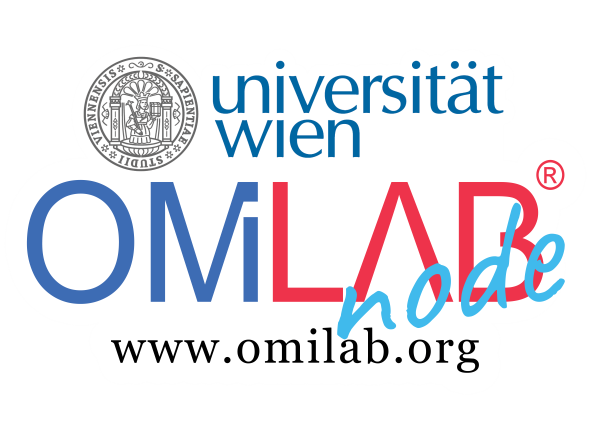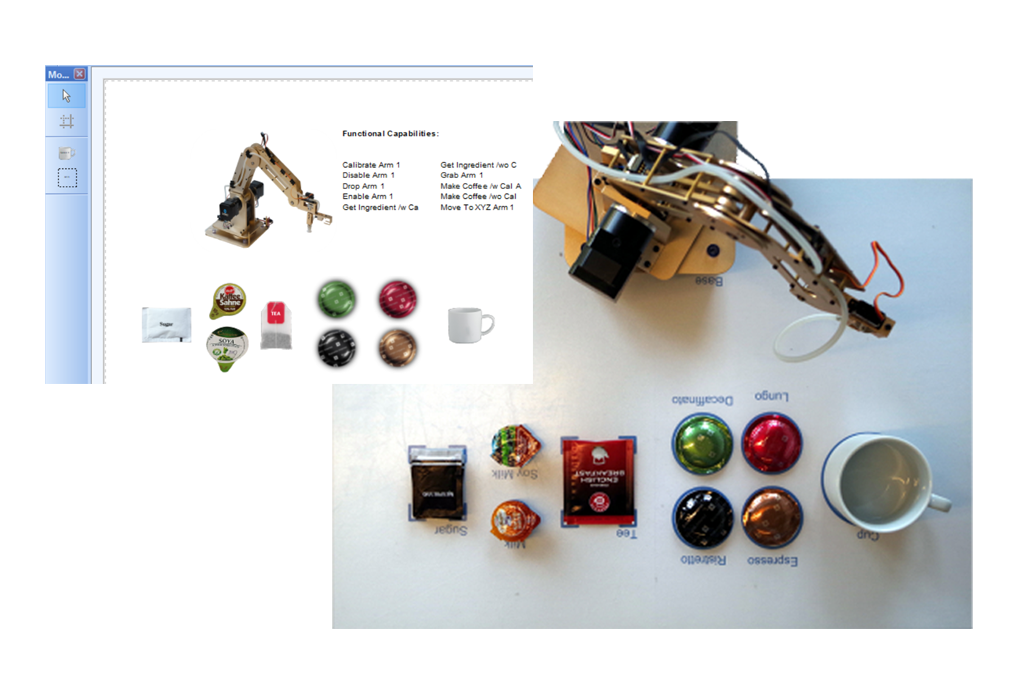Use Case
This project is based on the concept of “Smart” models and allows the creation of models that are easy to understand and reproduce for humans and at the same time can be read by a machine. It furthermore uses the starIOT framework which combines design thinking with Cyber Physical Systems (CPS). Recognizing use cases within this context is highly relevant since CPS are being included in many industrial scenarios due to the success of IOT and the upcoming industry 4.0.
The use case taken into consideration for this project raised from the necessity of humans to model CPS environments and have a clear knowledge of what can be done within that specific environment. For example, the need for certain elements in the environment so that the production of a specific product is possible. This can be applied to small and big factories to produce goods.
To implement this use case, semantic technologies play a big role. In this project, ontologies were used to store data about the possible elements in the environment as well as the details and the capabilities of the CPS. The behavior of the CPS is controlled by algorithms implemented within the ADOxx platform.
Experiment
To test the use case, the following has been implemented:
- Metamodels and models in ADOxx:
- Algorithms in ADOxx:
- API in Java
- Ontology
The experiment took place in OMiLAB using the robotic arm with the coffee environment. The experiment consisted in:
- Setting up the environment with a missing ingredient
- Modelling this environment in ADOxx
- Starting the process of producing a coffee that needs that component and showing how the algorithm recognizes that the CPS that has the needed capability to make the coffee misses a needed ingredient and consequentially breaks the process
- Adding the missing ingredient to the environment as well as to the model
- Starting again the process and showing how it is recognized over the model that all needed ingredients are available and the production is started
Code and documentation of the experiment can be found here:
https://gitlab.dke.univie.ac.at/edu-semtech/siot_cps-environment-modelling
Results
The experiment’s results are shown in this video:
The CPS behaved as expected and the experiment was completed successfully.
In the current implementation, only the environment of the arm capable of making coffee was taken into consideration. As future work, it would be interesting to create a metamodel for the second arm in OMiLAB with the capability of making burger. In the current version of the ontology, this future work has already been taken into consideration, hence the arm is partially included (arm details and capabilities are not complete but can be partially be found in the ontology). Having 2 arms with 2 different capabilities would make the use case more interesting. According to the selected product, the algorithm will have to recognize in which environment the arm is and proof if the environment is suitable for creating that specific product.

